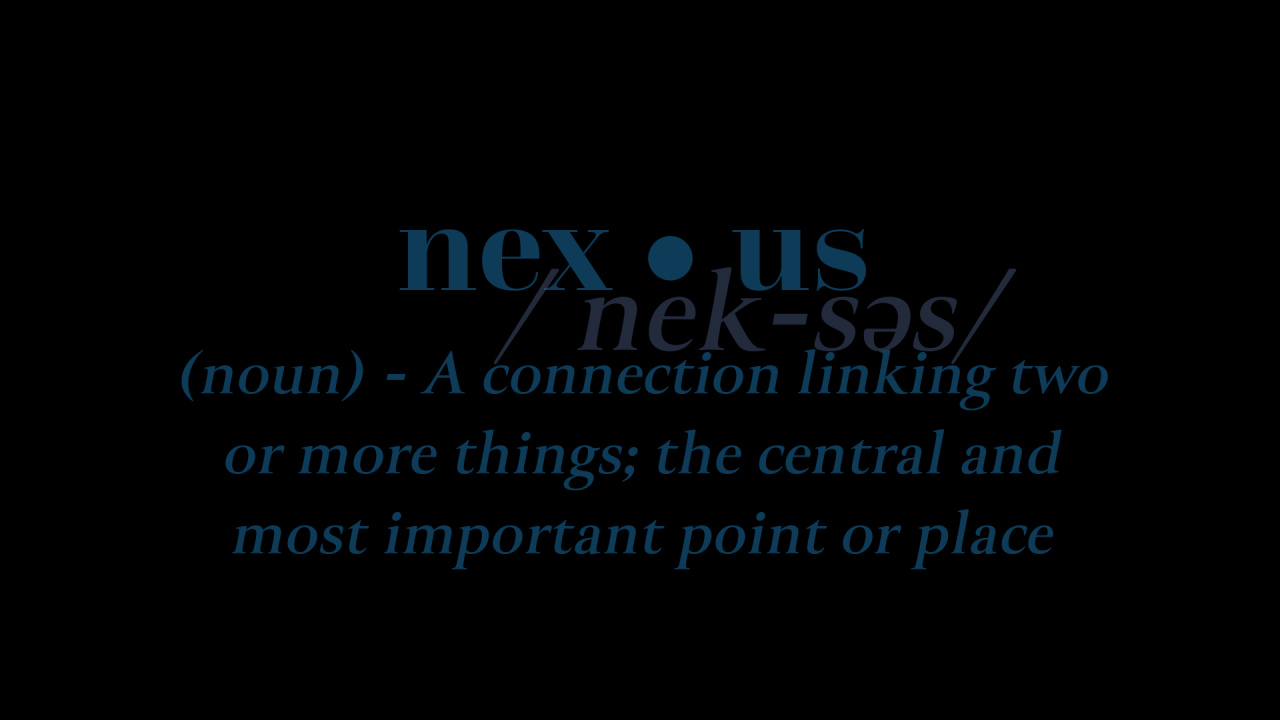
The term “nexus” holds a central place in various fields, ranging from law and economics to science and culture. This comprehensive guide delves into the multifaceted nature of nexus definition, tracing its historical evolution and examining its diverse applications.
From its origins in Latin, signifying a connection or bond, the concept of nexus has evolved to encompass a wide range of meanings. In legal contexts, it often refers to a connection between a person or entity and a particular jurisdiction, while in business and economics, it pertains to the interconnectedness of markets or industries.
Nexus: Definition and Applications: Nexus Definition

The term “nexus” has a multifaceted meaning, encompassing a wide range of concepts across various disciplines. In its most general sense, “nexus” refers to a connection, link, or relationship between two or more entities, ideas, or events.
A comprehensive definition of “nexus” would include its various interpretations and applications, encompassing its historical evolution, legal implications, business and economic significance, scientific and technological relevance, and social and cultural dimensions.
Historical Context
The term “nexus” has its roots in Latin, meaning “to bind” or “to tie.” It has been used for centuries to describe the connection between different elements or aspects of a subject.
Over time, the meaning of “nexus” has evolved to encompass a broader range of relationships, including physical, conceptual, and abstract connections.
Legal Applications
In legal contexts, “nexus” is often used to establish a connection between a person or entity and a particular jurisdiction or legal system.
- For example, in tax law, “nexus” refers to the presence of a substantial connection between a business and a state, which determines the business’s obligation to pay taxes in that state.
- Similarly, in criminal law, “nexus” can be used to establish a connection between a crime and a particular location or jurisdiction, determining where the crime should be prosecuted.
Business and Economic Applications
In business and economics, “nexus” refers to the connection between different factors or entities that influence economic outcomes.
- For example, “nexus” can be used to describe the relationship between consumer demand and economic growth.
- It can also be used to describe the connection between technological innovation and economic development.
Scientific and Technological Applications, Nexus definition
In scientific and technological fields, “nexus” is often used to describe the relationship between different scientific disciplines or technological systems.
- For example, the “nexus” between physics and biology refers to the emerging field of biophysics, which combines principles from both disciplines.
- Similarly, the “nexus” between computer science and artificial intelligence has led to the development of new technologies like machine learning and natural language processing.
Final Conclusion

In conclusion, the term “nexus” serves as a vital concept across a multitude of disciplines. Its ability to capture the interconnectedness and relationships within complex systems highlights its significance in understanding the world around us. As we continue to explore the various facets of nexus definition, we gain a deeper appreciation for the intricate tapestry of connections that shape our lives.
Commonly Asked Questions
What is the most common usage of the term “nexus”?
In legal contexts, “nexus” typically refers to a connection between a person or entity and a specific jurisdiction.
How has the meaning of “nexus” changed over time?
The term “nexus” has undergone a gradual evolution, expanding from its original Latin meaning of “connection” to encompass a broader range of concepts, including interconnectedness and relationships.
What are some examples of nexus in business and economics?
In business and economics, “nexus” often refers to the interconnectedness of markets or industries, such as the relationship between supply chains and consumer demand.





